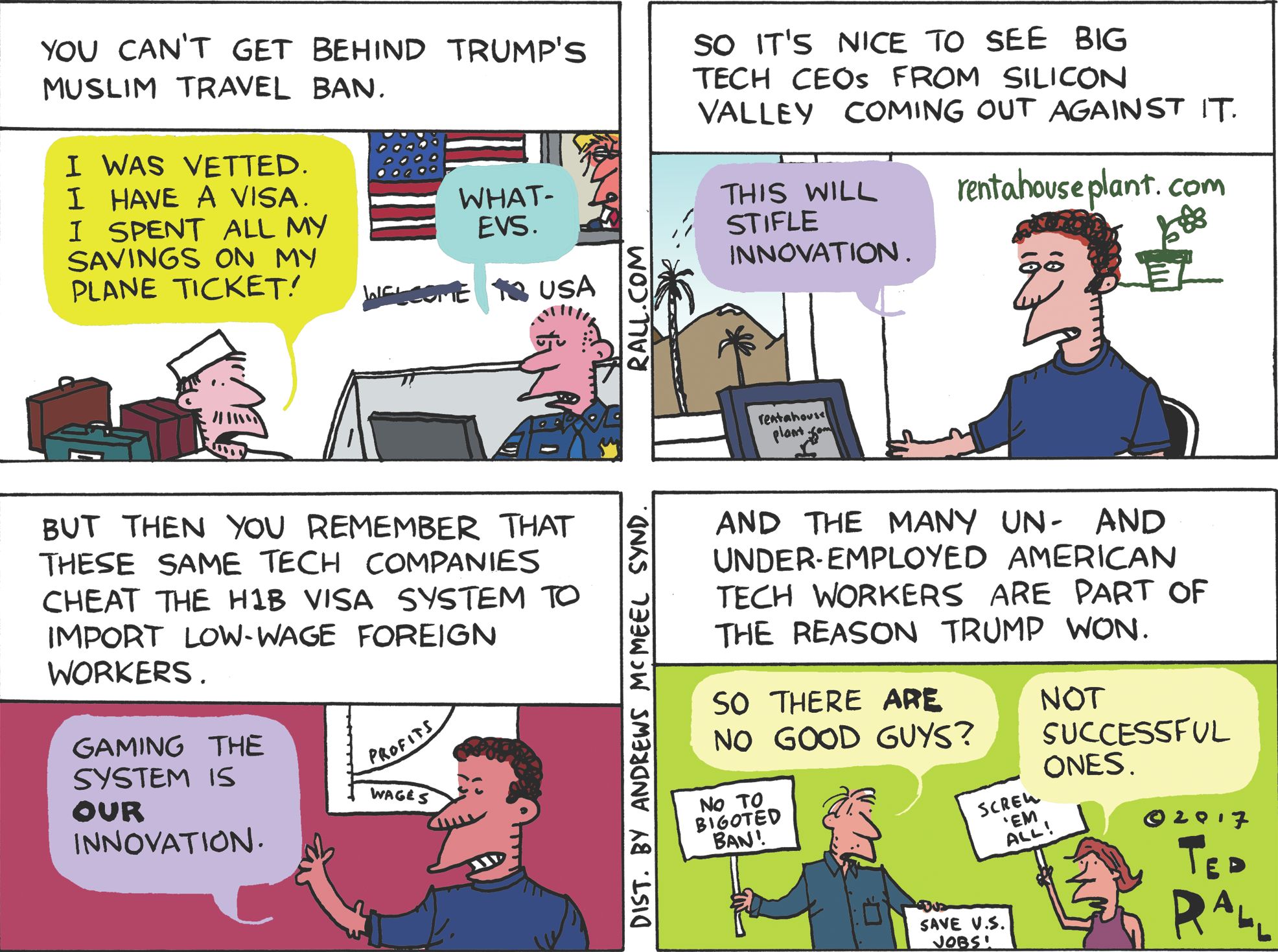Few tech workers come from the seven countries affected by U.S. President Donald Trump's entry ban. But the 97 U.S. companies, most of them from the tech sector, that lent their support to the State of Washington's lawsuit aiming to block Trump's executive order, have good reasons to fight it every step of the way.
Iran, Iraq, Libya, Somalia, Sudan, Syria and Yemen aren't huge sources of tech talent, at least according to the imperfect gauge provided by the H1B visa statistics. This visa type is often used by tech companies to hire engineers. In 2015, only 254 people from the seven countries received such visas, and that number doesn't include a single Somali or Yemeni citizen. Poland alone provided 252 H1B workers that year, while India, the undisputed champion, sent almost 120,000 such workers to the U.S.
Whatever problems Trump's executive order created weren't insurmountable for the likes of Apple, Google, Facebook, Netflix or PayPal, all signatories to the amicus brief in support of the Washington lawsuit. They could make arrangements for these workers and their families, applying for exceptions or relocating them to overseas subsidiaries. The companies, however, chose to fight the ban anyway, risking blowback from a mercurial president. The obvious reason is laid out in the brief: The executive order came with no warning and created much confusion, so recruits everywhere — not just in those seven countries — would be justified in having misgivings about the U.S. now:


















With your current subscription plan you can comment on stories. However, before writing your first comment, please create a display name in the Profile section of your subscriber account page.